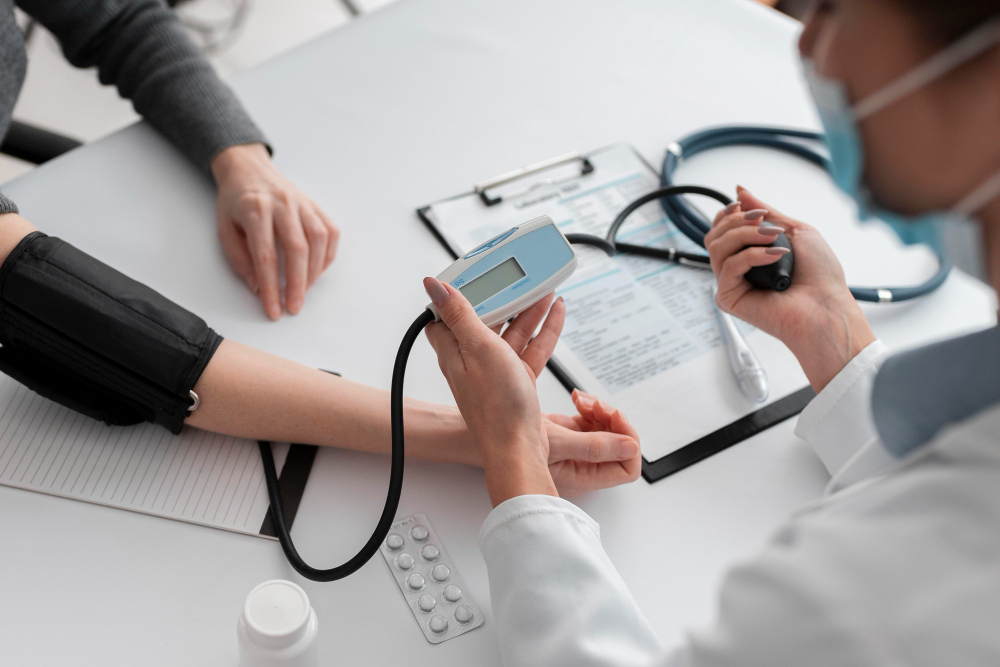Health is wealth, as the old saying goes, but maintaining one’s health requires more than just a balanced diet and regular exercise. A critical component of safeguarding health is the routine health check-up, a comprehensive examination of a person’s current health status. A health check-up refers to various tests and examinations performed by a healthcare professional to evaluate your overall health condition. The significance of regular health check-ups cannot be overstated, as they serve as our first line of defense against potential health issues. Let’s delve deeper into this subject.
Why Regular Health Check-ups Are Crucial
The importance of regular health check-ups to improve physical health cannot be overstated. They serve as the cornerstone of preventive medicine, aiming to keep you in the best health possible. Regular check-ups provide a snapshot of your current health status, and when compared over time, can help detect subtle changes or trends that might indicate the early stages of a health issue.
Early detection is crucial, as it can significantly impact the course of a disease. For instance, conditions like diabetes, heart disease, and certain types of cancer can be managed more effectively if detected early. Regular check-ups also present an opportunity to update necessary vaccinations, assess your risk of future medical issues, encourage a healthy lifestyle, and ensure that you have a good relationship with your healthcare provider for when illness does strike.
Unraveling the Components of a Health Check-up
A regular health check-up includes an array of different tests and screenings, depending on one’s age, sex, family history, and lifestyle habits. The question often arises, “How do you check your health?” While self-assessments like observing body changes or keeping track of any unusual symptoms are beneficial, professional check-ups ensure a more accurate and thorough evaluation.
A basic medical check-up list may encompass the following:
- Physical Examination
- Blood Pressure Measurement
- Blood Tests
- Cholesterol Check
- BMI (Body Mass Index) Calculation
- Eye and Ear Tests
- Oral Health Examination
For more information about each component in the checklist, you may click here.
The Variety of Medical Check-ups
There is a wide array of types of medical check-up designed to monitor different aspects of your health. The most common is the general physical examination, which assesses your overall health. However, specialized check-ups, such as mammograms, colonoscopies, eye examinations, and gynecological exams, target specific areas and potential issues.
For instance, dental check-ups, which should be done twice a year, are critical for maintaining oral health. They can help identify issues like gum disease and cavities before they become serious. This article provides an in-depth look at the importance of regular dental check-ups.
Regularly Recommended Health Tests
Answering the question, “What health tests should be done regularly?” depends on various factors, including your age, sex, and family history. However, certain health tests are universally recommended.
These include blood pressure measurements, blood tests to assess cholesterol and glucose levels, and body mass index (BMI) calculations to determine if you’re at a healthy weight. Regular screenings for various types of cancer, such as breast, colon, and cervical, are also vital, particularly as you get older.
Women over 40, for instance, are advised to have a mammogram every one to two years, while men over 50 should have regular prostate screenings. Regular eye and ear tests are also critical, especially for the elderly, as conditions like glaucoma and hearing loss are more prevalent in this demographic.
Regular Check-ups: Your Health’s Best Friend
“Why is regular health important?” This question might seem simple, but the answer is multi-faceted. Regular health check-ups are pivotal for maintaining and improving health, detecting potential problems early, and preventing the development of chronic diseases.
Regular check-ups not only help identify potential health risks before they become serious but also provide a chance to update your medical history. This information can be vital in emergencies when health professionals need to make quick decisions.
By regularly monitoring your health, you can take control of your well-being and make informed lifestyle choices. As mentioned in this article, understanding what constitutes a healthy diet is an example of how such informed decisions can contribute to overall health improvement.
Moreover, regular check-ups can help establish a baseline of what’s normal for you, making it easier to spot any changes in future check-ups. This ongoing record of your health can be instrumental in spotting early signs of diseases like cancer or heart disease.
Thus, regular check-ups are not merely a routine procedure but a powerful tool for proactive health management.
Conclusion
In closing, the value of regular health check-ups in maintaining optimal health is indisputable. They serve as a critical tool for early detection, prevention, and management of potential health issues. With the variety of specialized medical check-ups available, tailored healthcare is within everyone’s reach.
Remember, good health is a lifelong journey that requires active participation. Regular check-ups empower you with knowledge about your health, facilitating informed decisions about lifestyle choices.
Your health is your most valuable asset. Don’t wait for a health crisis to appreciate its worth. So, take action today, schedule your regular check-up, and take the proactive step towards a healthier future. After all, when it comes to your health, prevention truly is the best cure.

